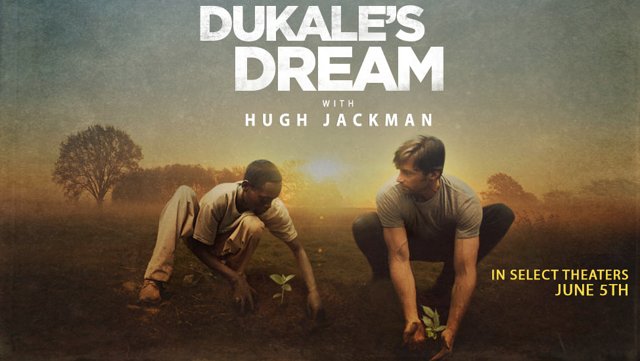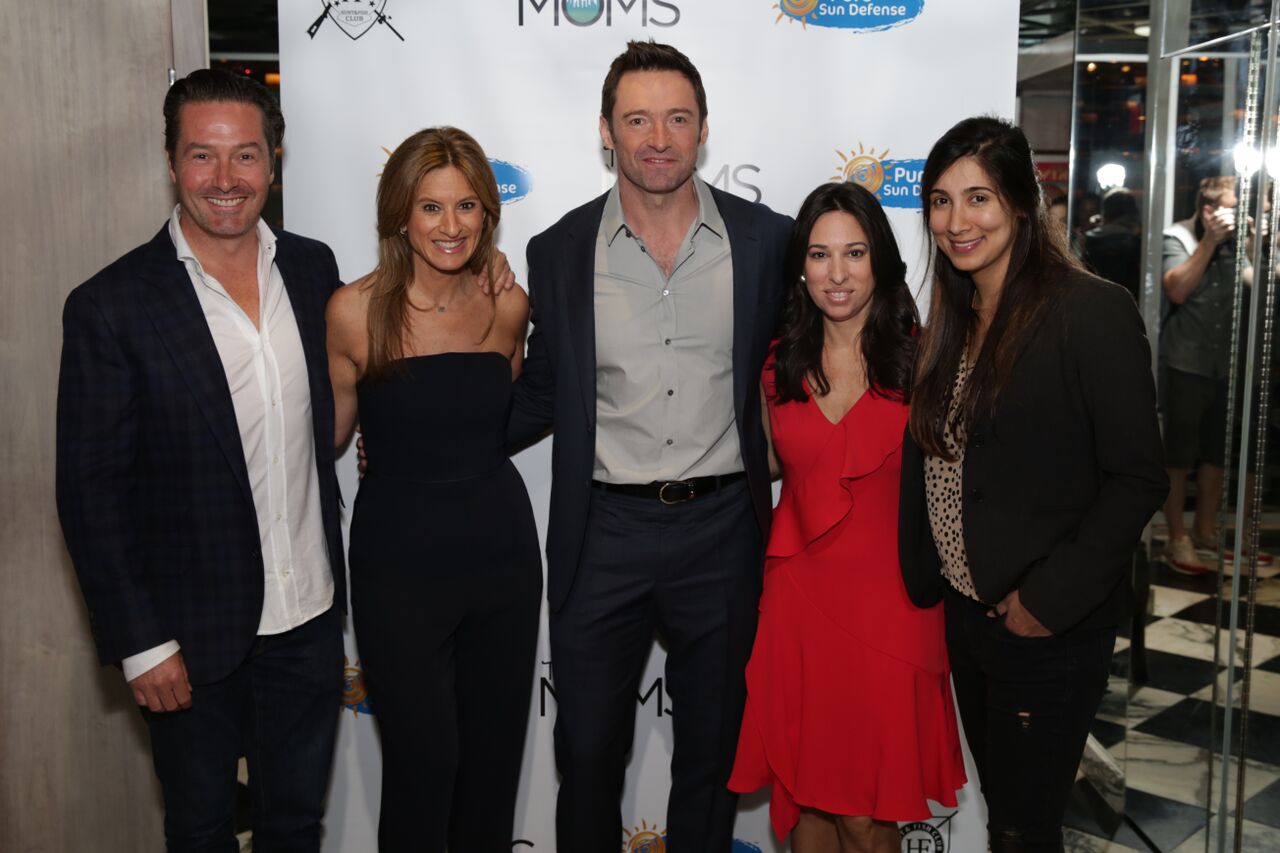An all new documentary with the legendary Hugh Jackman in it
Dukale’s Dream is a feature length documentary about Hugh Jackman’s unlikely friendship with an Ethiopian coffee farmer named Dukale, who had grown up in poverty and was deprived of an education. After working on Dukale’s farm, Hugh realized that something as simple as a cup of coffee could have a profound impact on global poverty. Jackman was so inspired by what he learned from Dukale that he made a promise to him and his family, sending him on a life-changing journey. We cover the New York premiere at SVA. Hugh was in attendance. Read our exclusive interviews below:
Josh Rothstein (Director):
Q: So what made Hugh a good subject to document in this film?
A: Hugh has had a genuine interest in this space and he has had a genuine interest his whole life about social issues and human rights issues and the film really starts there and ends here which is trying to figure out, as we all are, what’s the best way that we can position ourselves on this planet to help those in need. If we have been given any opportunity in life then let’s find a way to do some good work on this planet. So in short, that’s the genuine reality to Hugh’s interest in that and as a storyteller it was a great privilege to be able to amplify that journey.
Q: What was it like filming in Ethiopia? Were there any challenges that you faced while filming?
A: Yeah, there are always challenges in filming in any sort of environment. Obviously filming in an environment where you’re dealing with issues of electricity and dust but in so many ways you have these moments where – any problems or struggles you’re having pale in comparison to the realities of the individuals that you are there to document.
Q: And a lot of the film deals with people struggling with poverty and who are on the poverty line and towards the end of the film it mentions ways that the general population can help support these people. And Hugh talks a lot about fair trade especially with coffee, so are there any other ways that you see that the general population can help further support these people?
A: I think it is important that one keeps in mind that it’s not a one size fits all. So the notion of fair trade works well for Dukale’s specific cooperative and it worked well for the business model and the chain that Laughing Man has set up. But, one has to consider and take into consideration the needs of the individuals who are rights, so in any situation in any part of the country and all throughout Ethiopia, fair trade isn’t always the right model; sometimes direct trade is the right model. So I think that it is important to realize that and take a considerate look at any developing world – any part of the world that you interact with. So, in short, I think it’s up to the consumer. If you are interested in playing that active role in your everyday life then you have a myriad of ways once you are awake to that idea then you can do that. We illuminate one model, fair trade, as it relates to Dukale and Laughing Man. But there are a number of ways in your everyday life that you can play a role in contributing to addressing some of those biggest challenges today.
Q: And Dukale’s story and life is a very inspirational story so has that affected you in any way?
A: Yeah, honestly coming into the film I am the audience. I am a layman. I don’t work for a nonprofit. I am someone who had curiosity and an interest and how as a storyteller I could use this tool to spread a positive message. I knew very little, frankly, about some of the new aid and the development models – I knew a little bit about microfinance. So yeah, it’s completely changed the way that I think about, on an everyday basis, how as a consumer, I can go about functioning. And moreover for me, I realize that I do have a unique opportunity to spread those messages. So that’s really what today is about. And moving forward in the days to come it is about ‘How can we use this film as a vehicle to support the people doing this very important work on the farm?’
Q: And are there any updates on Dukale that you know of?
A: Yeah, Dukale has continued to move up the ladder of development. His wife, Adanesh, is continuing, which is a great sign, with her coffee business – her tea and coffee market base, which is a great sign that she, as a result of the methane gas converter, the clean cook stove, she is freed up to do those sorts of entrepreneurial roles in the family. So, often times in this space you are looking to the wellbeing and empowerment of children because that ultimately the sign of the wellbeing of the community, in particular areas of extreme poverty. So when we look at Dukale and ask how Dukale is doing, we have to look at his family. His children are continuing going to school – he has 5 children and 4 of those 5 are going to school. And his wife is continuing to play an active role in the family’s decision making process and as someone who is bringing income into the family. So those are some of the components and we are very pleased that Dukale and his family are doing so well.
Jesse Scolaro (Producer)
Q: So what do you think made Hugh a good subject to follow for this film?
A: I was talking to someone the other day and they said that the man has a heart the size of Texas and it’s true. Every interaction I have had with him, every time I have seen him on set or when the cameras are not rolling, he is the real deal. He is very genuine. I think that he has had great fortune in his life and he is really appreciative of it and he is really trying to do good with his resources.
Q: How was it like shooting in Ethiopia? Were there any challenges that you faced while shooting?
A: Yeah, there were production related challenges in terms of charging batteries, cleaning lenses, if you break a piece of equipment or lose something you don’t really have an option to get something else very quickly especially in the region where the film was shot. But besides that no. A documentary crew is so nimble that you are able to just role with the punches and get in there. You’re not dealing with big productions lights or anything like that.
Q: And the film is releasing soon so is there any message that you’re hoping this film sends out?
A: What we’re hoping is that the film inspires discussion, conversation. We’re not asking people to donate money per se or to change their lives dramatically but if they can watch the film and feel like they have a better understanding of fair trade coffee at a minimum and know as a consumer that they are empowered to make choices in the products they buy and those choices will change people’s lives and have an impact on poverty, then that’s a very powerful thing. And so if people come away and feel like, ‘oh if I choose to buy that shirt vs this shirt, I am going to be making a difference in people’s lives and that would be fantastic.’
Q: Dukale’s story is very inspiring and so has his story affected you in any way?
A: Yeah, it has. I have made about 25 feature films. This is my first documentary that I have produced and it has really changed my life. It has changed the way that I look at making movies, the importance of movies, the impact that movies have, and I feel a little bit of an addict now; I want to make more documentaries and I want to make more films that have meaning. So instead of making a narrative film that people see it, they like it, they don’t, and then it goes away – a movie like this can have a lasting impact and conversation can continue well after the movie has been screened.
Q: And anything coming up for you that you would like to share?
A: The distribution of this movie. I just had another movie that came out called ‘Revenge of the Green Dragons,” which is a narrative film a few months ago. And I am looking forward to working with Josh on another project, maybe a narrative project.
The film will be in select theaters on Friday, June 5 and available on VOD on Tuesday, July 14.
Additional sighting: SiriusXM’s The MOMS Denise Albert and Melissa Gerstein hosted Hugh Jackman for breakfast at Hunt & Fish Club this morning where he spoke about his bout with skin cancer, his recovery and his newest endeavor @PureSunDefense at Hunt & Fish Club.
Photo credit: Jason Shaltz
-Vinesh Vora

